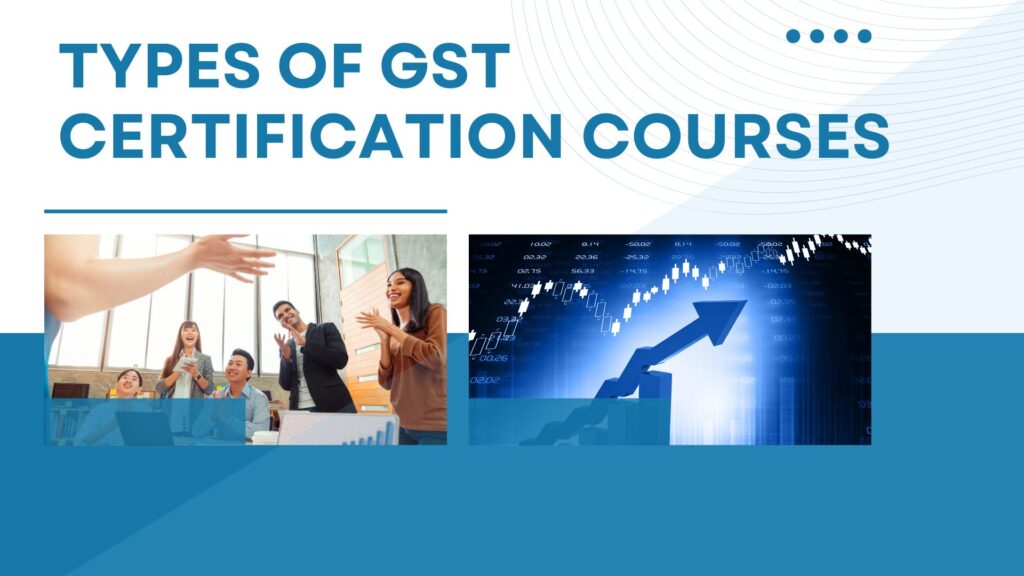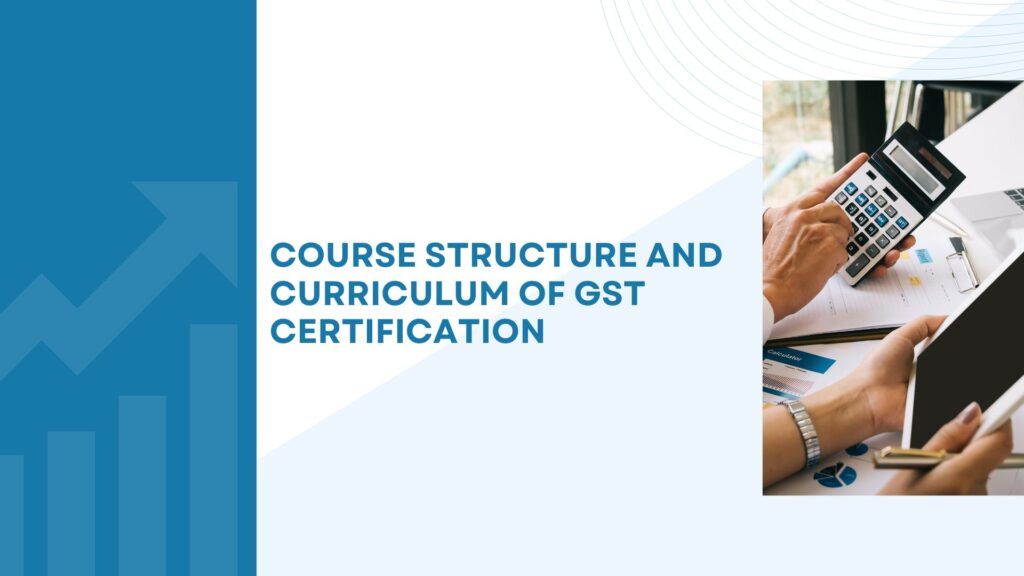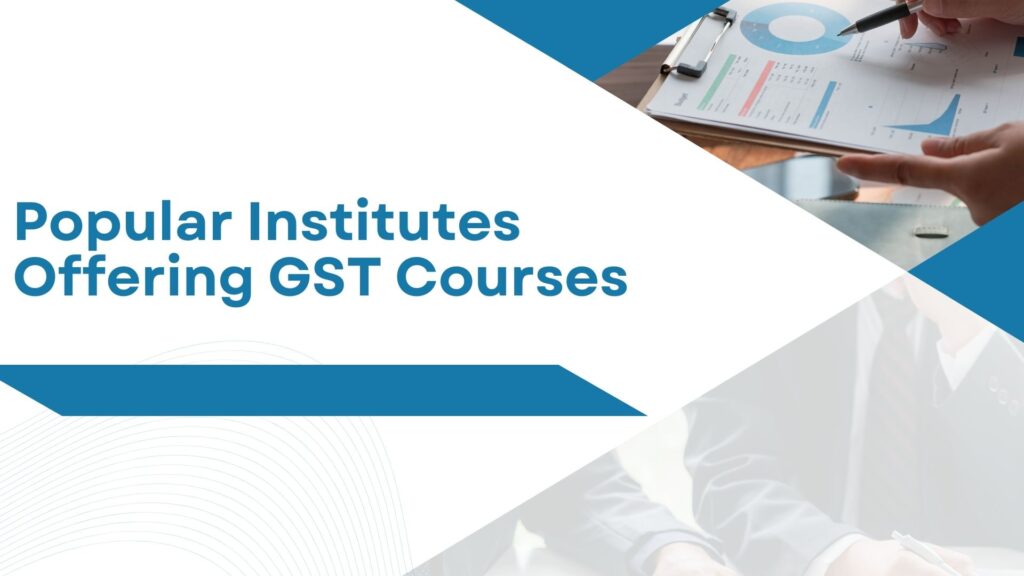Here are the main types of GST (Goods and Services Tax) certification courses available in India and internationally. These courses are designed for accounting professionals, business owners, students, and tax consultants seeking in-depth knowledge of GST:
1. Basic GST Certification Course
Target Audience: Beginners, students, business owners.
Focus Areas:
Introduction to GST
Types of GST (CGST, SGST, IGST)
GST registration and return filing
Invoicing and input tax credit (ITC)
Duration: 1 week to 1 month
2. Advanced GST Certification Course
Target Audience: Working professionals, accountants, tax consultants.
Focus Areas:
GST law and compliance in detail
Practical aspects of filing GST returns (GSTR-1, GSTR-3B, GSTR-9)
Audit under GST
Anti-profiteering measures
Recent updates and case laws
Duration: 1 to 3 months
3. Government Certified GST Practitioner Course (NACIN Certified)
Offered By: NACIN (National Academy of Customs, Indirect Taxes & Narcotics)
Target Audience: Individuals who wish to become certified GST practitioners.
Focus Areas:
GST law and provisions
Registration process as GST practitioner
Filing returns and refunds on behalf of clients
Legal obligations and rights
Requirements: Graduation + knowledge of taxation/accounting
Exam: Conducted by NACIN
Recognition: Legally recognized under GST Act
4. Online GST Certification Courses (via MOOCs)
Platforms: NPTEL, Coursera, Udemy, ICAI, etc.
Focus Areas:
Varying levels from beginner to advanced
Often include practical assignments and case studies
Flexibility: Self-paced with video lectures
Popular Among: Students and working professionals with time constraints
5. Industry-Specific GST Courses
Focus Areas:
GST in logistics, real estate, e-commerce, manufacturing, etc.
Sector-specific return filing and compliance
Target Audience: Professionals working in a specific domain
6. CA/CS/ICWA GST Specialized Modules
Offered By: ICAI, ICSI, ICMAI
Focus Areas:
In-depth and exam-oriented GST training
Compliance, reporting, audits, and litigation
Eligibility: CA/CS/CMA students or professionals
7. Diploma in GST
Offered By: Some private institutes and universities
Duration: 3–6 months
Curriculum:
Conceptual and practical learning
Case studies and internships
Outcome: Diploma certificate in taxation with a GST focus
If you’re targeting a career in taxation, finance, or accounting, choosing the Advanced GST Certification or NACIN Certified Practitioner Course can offer strong credibility and opportunities. Let me know if you want a comparison table or recommendations based on your background.







